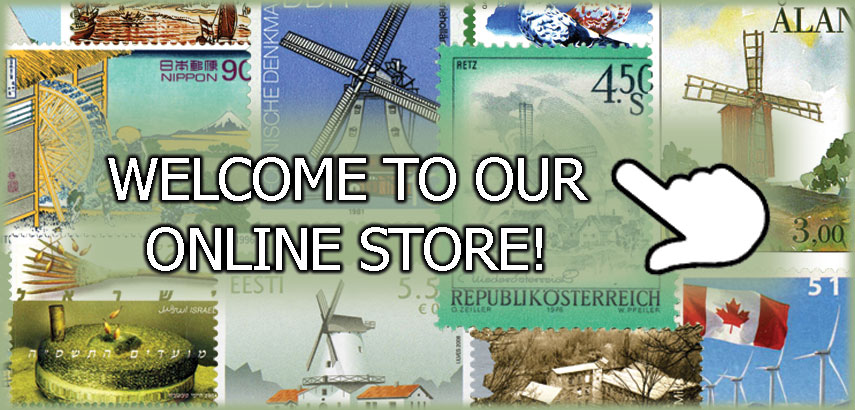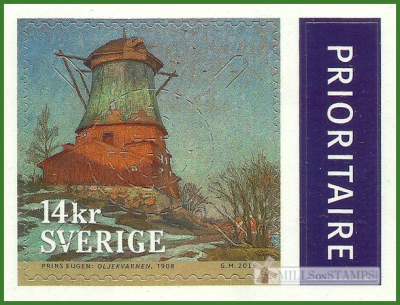-
150 years of Birthday of Prince Eugen
Sweden 2015.01.15
In issue: Stamp(s): 5 Booklet(s): 1
Printing: at self-adhesive paper
Issued in: booklet as one set
-
Perforation: Harrow Perforation type: 14x14
Subject:
14 crowns. Reproduction of Prince Eugen* paintings - "Waldemarsuddes oil mill"**
Additional:
*Prince Eugen Napoleon Nicolaus of Sweden and Norway, Duke of Närke (1 August 1865 – 17 August 1947) was a Swedish painter, art collector and patron of artists.
Prince Eugen was born at Drottningholm Palace as the fourth and youngest son of Prince Oscar, Duke of Östergötland. His mother was Sophia of Nassau. The newborn prince was granted the title of Duke of Närke. Upon the Duke of Östergötland's accession to the thrones of Sweden and Norway as King Oscar II, the Duke of Närke became fourth in line to the throne. However, he was more interested in painting than in reigning
After finishing high school, Prince Eugen studied art history at Uppsala University. Although supported by his parents, Prince Eugen did not make the decision to pursue a career in painting easily, not least because of his royal status. He was very open-minded and interested in the radical tendencies of the 1880s. The Duke became one of the era's most prominent landscape painters. He was first trained in painting by Hans Gude and Wilhelm von Gegerfelt. Between 1887 and 1889, he studied in Paris under Léon Bonnat, Alfred Philippe Roll, Henri Gervex and Pierre Puvis de Chavannes. Puvis de Chavannes's classical simplicity had the greatest influence on Prince Eugen's work. The Duke devoted himself entirely to landscape painting, becoming one of the era's most prominent landscape painters. He was mainly interested in the lake Mälaren, the countryside of Stockholm (such as Tyresö, where he spent his summers), Västergötland (most notably Örgården, another summer residence) and Skåne (especially Österlen).
**Waldemarsuddes oil mill is a windmill on the island of Djurgården in Stockholm. The mill stands on Waldemarsudde, south of Prince Eugen's Art Museum, and has been the subject of many of the prince's paintings.
The mill 1784 and used to prepare linseed oil. The oil mill at Waldemarsudde lack wings but is otherwise well preserved. It is an industrial historical rarity and one of five remaining of its kind in the world. Below the mill stands a Falun red painted building, it is kuskbodstaden and the water is an additional building with large windows, it is Waldemarsuddes orangery.
__________
This information has been taken from Wikipedia
Size (of sheet, booklet) mm: 42x162




